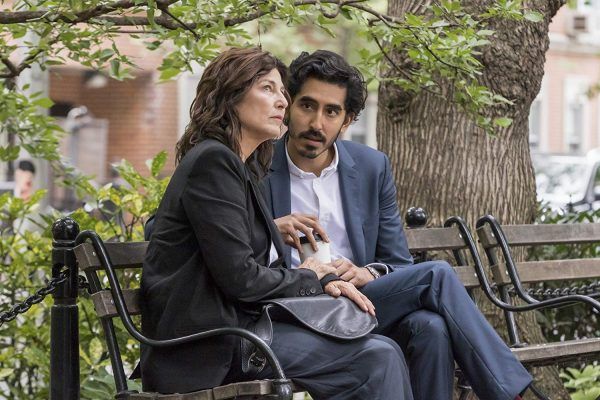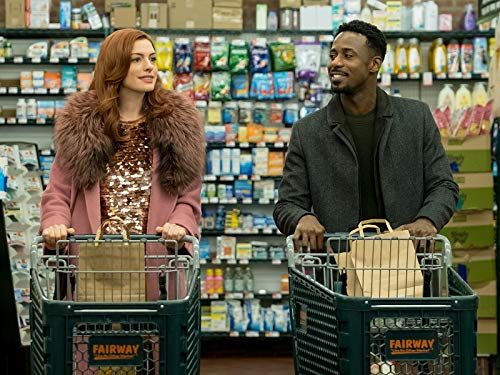Love takes many forms in Amazon Prime Video’s new anthology series Modern Love, and as is the case with many anthologies, this one’s a mixed bag. Based on the weekly column published by The New York Times, each episode of the show tells a different love story—a beginning, middle, and end in 30 minutes. Spearheaded by filmmaker John Carney, who writes and directs four of the eight episodes, the show is romantic in nature, but unfortunately is more akin to Carney’s muddled 2013 feature Begin Again than his more effective films Once and, most recently, the impeccable Sing Street. Saddled by predictable plots, contrived scripts, and sometimes questionable performances, Modern Love feels like it’d be more at home on the Hallmark Channel than on a prestigious streaming network. And yet, for those that are into the Hallmark Movie sort of thing (and there are a great many of you), this may be just what the doctor ordered.
There’s nothing wrong with predictable. That’s kind of a key component of the romantic comedy genre. But the best romcoms succeed despite their plots, hinging on lovable characters, romantic moods, and (in the case of Nancy Meyers) impossibly gorgeous kitchens. Modern Love gets off to a rocky start with an episode revolving around a woman (Cristin Milioti) whose dates are essentially screened by her doorman (Laurentiu Possa), seemingly against her will? It’s an icky premise to begin with, and while a plot twist midway through finally kicks the narrative into gear, there’s something “off” the entire episode that makes it hard to invest in this character’s well-being.
The second episode, also written and directed by Carney, finds a dating app developer (Dev Patel) being interviewed by a journalist (Catherine Keener) who’s asked if he’s ever been in love. Cue flashback!
Again, predictability is pretty much standard in romcoms, but there’s something to this anthology format that makes it tough to really invest in these characters. In a film like You’ve Got Mail, the narrative itself is a bit meandering, and the pace is somewhat slow. But the film succeeds thanks to the time spent with the two main characters, and to the warm world that director Nora Ephron was able to conjure. You want to continue watching not to see what happens next, but because you enjoy spending time with these people. With only 30 minutes to craft a beginning, middle, and end to a romantic comedy story, the “magic” is much harder to capture.
That said, the show’s third episode, written and directed by Carney and starring Anne Hathaway and The Deuce standout Gary Carr, is a bright spot that sidesteps the trite nature of the first two installments. Indeed, “Take Me as I Am, Whoever I Am” is worth watching as a standalone episode, as it provides a brutally honest and emotionally raw depiction of bipolar disorder.
The episode begins with Hathaway’s character in a manic episode while shopping for groceries, where she meets a nice man (played by Carr). Shoppers behind her are dancing, she’s wearing a beautiful, flashy dress, and even the lighting is turned up to 11. When she gets home, however, a depressive episode kicks in, and the whole mood of the aesthetic changes. Hathaway’s character narrates the installment so there’s no mistaking what’s being depicted here, and she delivers a terrifically dynamic performance that puts a face to a well-known and debilitating mental illness, and what it’s like to try and find love while fighting your own private battle. It’s an outstanding piece of television and one of the year’s best episodes.
Carney’s writing and direction are fantastic in the episode as well, which makes the subpar quality of some of the other episodes baffling. Still, there is an audience for the kind of contrived storytelling and forced romance that’s found in some of these installments. Heck, there’s an entire network devoted to that, and folks aren’t turning to Hallmark Original Movies for high art or challenging cinema. They want comfort, and while Modern Love as a whole didn’t quite match the romcom heights of films like Sleepless in Seattle or even Sleeping with other People for me, your mileage may very well vary depending on what you’re looking to get out of a romantic comedy anthology series.
Not all things are made for all people, and that’s okay. Still, in the wake of Carney’s rapturous Sing Street, I can’t help but want something more out of some of the episodes here. Especially with an ensemble that also includes Tina Fey, Andrew Scott, and Julia Garner, the show feels like something of a missed opportunity. But while the quality isn’t quite up to par across the board, there’s likely still a viable audience for a show like Modern Love. Just don’t be surprised if it’s not for you.
Rating:★★



